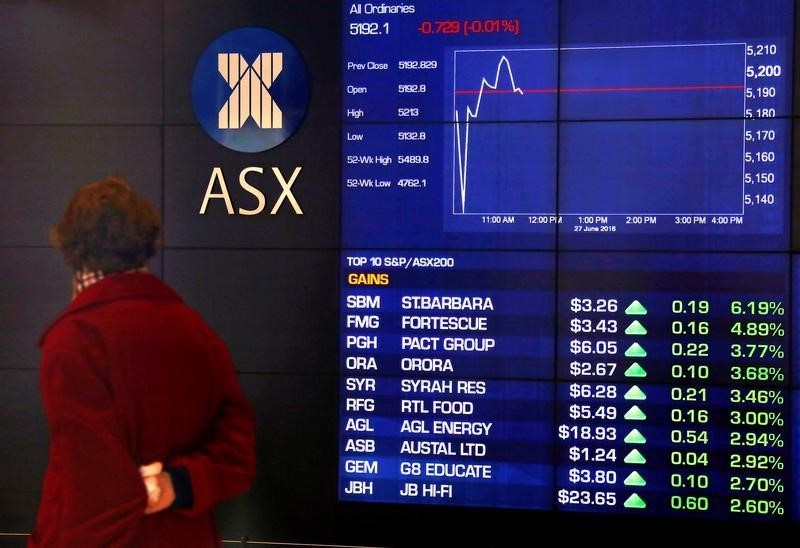This post was originally published on this site

Investing.com — Most Asian stocks fell on Thursday, with Chinese indexes under pressure from concerns over slowing economic growth and worsening Sino-U.S. ties, while Australian stocks surged on the prospect of an imminent pause in the Reserve Bank’s rate hikes.
China’s Shanghai Shenzhen CSI 300 and Shanghai Composite indexes fell about 0.2% each, having largely lagged their regional peers this week as markets feared a further deterioration in diplomatic ties between the world’s largest economies. China threatened retaliation if Taiwan President Tsai Ing-wen met U.S. House Speaker Kevin McCarthy as part of an American visit this week.
The country had carried out a series of war drills close to Taiwan in August, after then-U.S. House Speaker Nancy Pelosi visited Taipei. But since then, relations between Beijing and Washington have seemingly worsened amid controversies over a spy balloon, as well as the imposition of more U.S. trade restrictions on China’s chipmaking industry.
Still, promises of more stimulus helped limit losses in Chinese stocks. Premier Li Qiang, speaking at the Boao Forum, reiterated that the country will continue to boost domestic spending and drive a further economic recovery.
Focus this week is largely on Chinese manufacturing and service sector activity data for March, with analysts forecasting some cooling as an economic recovery runs out of steam. Recent media reports suggest that an expected rebound in China may not be as pronounced as markets are hoping for, especially as the country grapples with cooling global demand for exports.
Hong Kong’s Hang Seng index fell 0.5%. But shares of Alibaba Group (HK:9988) (NYSE:BABA) rose 0.6% as the firm outlined more details on its plans to split six ways.
Australian stocks were the biggest outperformers for the day, with the ASX 200 index up 0.9% on growing expectations that the Reserve Bank will pause its rate hike cycle by as soon as April.
Analysts tapered their expectations for Australia’s terminal rate on signs that inflation had peaked and that economic growth was cooling. The RBA is now expected to hike rates once more, before announcing a pause.
Other Asian stocks retreated, with Japan’s Nikkei 225 index losing 0.8% as investors locked in a series of strong gains this week. Risk-heavy Southeast Asian stocks also fell, with Malaysian and Thai stocks losing 0.2% each.
Technology-heavy indexes took some support from an overnight rally on Wall Street, which was spurred by easing fears of a banking crisis. South Korea’s KOSPI and the Taiwan Weighted index added about 0.5% and 0.3%, respectively.

